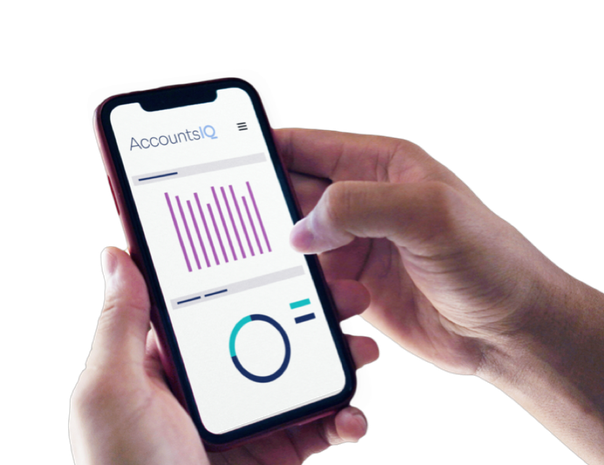Who can independently examine charity accounts?

What is an independent examination of charity accounts?
An independent examination of charity accounts is carried out when a charity’s annual income is over £25,000. If a charity’s annual income exceeds £1 million, then a charity account audit is required which goes more in-depth.
The purpose of an independent examination of charity accounts is to ensure that all money is accounted for and records have been kept correctly. This examination is a less intrusive version of a full audit with less scrutiny involved.
What charities can have their accounts independently examined?
The following thresholds dictate which charities can have their accounts independently examined or audited
- Income less than £25,000 - no need for external examination but charities can still hire an independent examiner if they wish.
- Income over £25,000 - the charity’s trustee is responsible for arranging an external examination of accounts.
- Income over £250,000 - the independent examination must be carried out by a qualified accountant.
- Income over £1 million - an audit must be carried out which scrutinises the charity’s accounts in more detail.
Technically, all charities can have their accounts independently examined to assure the public, beneficiaries and supporters that a charity’s books are in order. However, it’s only a requirement for charities with an income of £25,000 or more.
Using charity accounting software can be an easy way to stay on top of the books and provide transparency for both trustees and independent examiners.
How to nominate a suitable person to perform the independent examination?
Under the Charities Act 2011, trustees have a legal duty to appoint ‘an independent person who is reasonably believed by the trustees to have the requisite ability and practical experience to carry out a competent examination of the accounts’. No specific qualifications are required of the independent examiner but they must have a strong understanding of charity accounts.
The prospect must be an ‘independent person’
The examiner must be entirely independent of the charity and cannot be influenced by a relationship with the charity or its trustees. Whilst the examiner can be a supporter of the charity, they cannot have a close relationship or involvement in the day-to-day affairs of the charity.
Below are some instances where an examiner’s independence may be called into question:
- They are an employee or bookkeeper for the charity
- They oversee the charity’s finances
- They are a major donor or beneficiary of the charity
- They have a financial or commercial relationship with the charity or its trustees
- They have a close relationship with the charity’s trustees.
If trustees are ever unsure whether an examiner is independent, they should ask the examiner to explain in writing why they meet the independence criteria. Trustees should also not carry out unethical behaviour, such as only giving work to an examiner if they agree to:
- Personally pay or benefit the trustees
- Provide the charity with donations or other services.
- Follow agreed accounting policies or treatments.
The prospect must have the required ability and practical experience to carry out a proficient examination
While no specific qualifications are required, the independent examiner must have the appropriate skills and experience to carry out their responsibilities. Examiners are also required to understand reporting standards specific to charities, and examiners unfamiliar with the charity sector need to gain this knowledge before carrying out the independent examination.
The knowledge required includes producing a trustees’ annual report and accounting for different charitable funds.
The examiner must also have sufficient accounting skills to carry out an independent examination of a charity. The skills required vary depending on the charity’s income:
- Income over £250,000 - the examiner must be a member of the accountancy bodies listed in the appendix to the Charities Act 2011.
- Income of £250,000 or less - the examiner is not required to be a member of certain accountancy bodies. They will still require an understanding of accounting principles, standards, and the Charities SORP. As a result, the government recommends that trustees still appoint an examiner from the accountancy bodies listed in the appendix.
Trustees should consider the following when looking for an appropriately skilled independent examiner:
- They have read and understood the Commission’s Directions and guidance.
- Professional examiners can provide proof of membership in one of the accountancy bodies listed in the appendix to the Charities Act 2011. A certificate or licence may be required.
- Non-professional examiners should be able to demonstrate their skills and experience.
The trustee’s final decision on who will act as the charity’s independent examiner needs to be in writing.
The prospects must be reviewed yearly to ensure they remain independent and have the experience needed
Even when using the same independent examiner for charity accounts each year, it’s important that trustees continue to check whether they are fully independent and have the skills required.
If a charity has had a significant increase in income, trustees need to check their independent examiner is still qualified to do the job.
It’s also a good time for trustees to assess any concerns over previous examinations. For example, if an independent examiner did not comply with Commission’s Directions and guidance. Trustees might consider finding another independent examiner for their charity.
Automating charity finance functions by using cloud technology allows charities to stay on top of accounts whilst remaining compliant with the additional rules charities face regarding transparency. Independent examiners may consider implementing this technology to help their clients maintain transparent reporting.
Speak to one of our experts to see how AccountsIQ can transform your finance function
Get in touch




